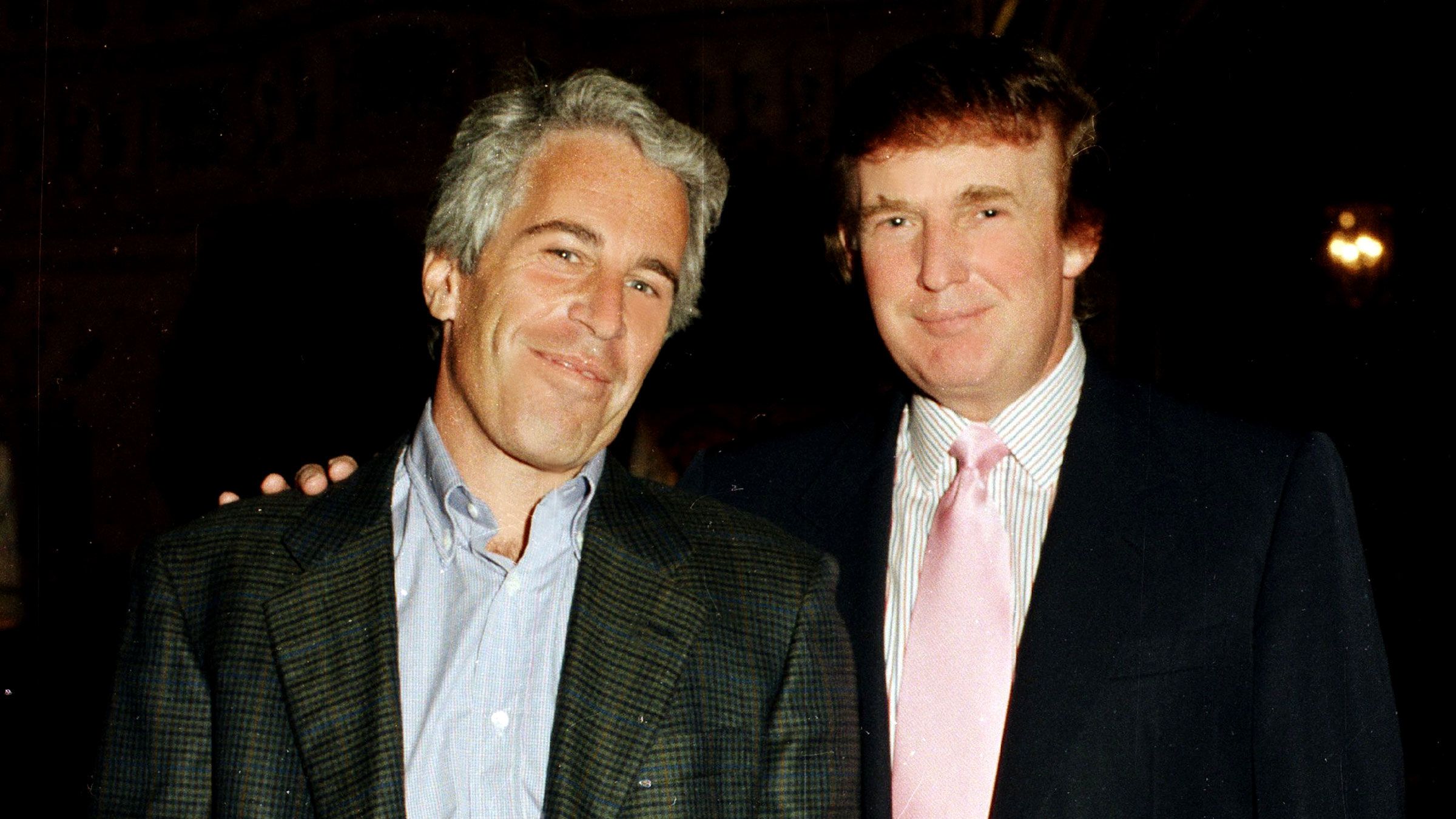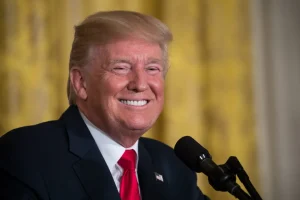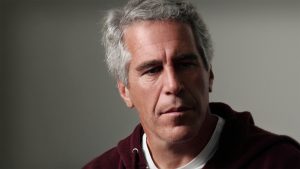A newly released batch of emails linked to Jeffrey Epstein has triggered widespread online speculation, political commentary, and renewed scrutiny of the late financier’s network of associates. Central to the latest controversy is a reference to someone called “Bubba,” mentioned in an email exchange between Jeffrey Epstein and his brother, Mark Epstein. The mention gained significant attention after a 2018 message—made public as part of a congressional document release—suggested there was an alleged image of President Donald Trump “blowing Bubba,” a phrase that set off a storm of partisan interpretations and viral social-media reactions.
The emails, released last week by members of the House Oversight and Reform Committee, span from 2011 through 2019 and include dozens of conversations involving Jeffrey Epstein, his business associates, confidants, lawyers, and family members. Within those communications, the exchange between Jeffrey and Mark Epstein mentioning “Bubba” quickly emerged as the most widely discussed, largely because of the explosive—and ambiguous—language used.
The message in question revolved around whether Russian President Vladimir Putin had knowledge of a supposed image involving Trump and “Bubba.” Although the email contained no such image, no context, and no follow-up evidence, its wording immediately fueled speculation online. Social media users seized on the reference due to a decades-long association between the nickname “Bubba” and former President Bill Clinton. Clinton has been photographed with Epstein on several occasions before the financier’s arrest, and political rivals often invoke those images in discussions of Epstein’s history.
Because of that longstanding association, many assumed the “Bubba” mentioned in the email was a coded reference to Clinton. That interpretation quickly spread, magnified by posts, commentary, and sensationalized speculation attempting to connect disparate threads in an already complex narrative about Epstein’s network and the powerful individuals connected to him.
To address the fast-growing rumors, Mark Epstein spoke publicly on November 16 in an interview aimed specifically at clarifying the identity of “Bubba.” His remarks were unambiguous. According to Mark, the person referenced in the email is not Bill Clinton and has no connection to him.
“For the avoidance of doubt, the reference to ‘Bubba’ in this correspondence is not, in any way, a reference to former President Bill Clinton,” he stated. He emphasized that he wanted to dispel “incorrect assumptions” and “deliberate misreadings” that began circulating immediately after the emails became publicly accessible.
A spokesperson for Mark Epstein, Ali Clark, reinforced the clarification, saying that “Bubba” is simply a private individual. The spokesperson described the person as someone who is not a public figure and who had nothing to do with the political and social context surrounding Clinton or Trump. Clark also stressed that privacy concerns are central to why the individual’s name is not being publicly disclosed.
Mark Epstein went further, explaining that the email exchange had been wildly misinterpreted. According to him, the comments about “Trump blowing Bubba” were not meant to be taken literally nor viewed as a serious allegation. He characterized the discussion as part of a humorous, private back-and-forth between two siblings—an inside joke never intended for public scrutiny or formal interpretation.
“They were simply part of a humorous private exchange between two brothers,” Mark said. “They were never meant for public release or to be interpreted as serious remarks.”
The broader contents of the released emails also include several other references to Donald Trump, which have contributed to the political firestorm surrounding the documents. Some messages mock Trump’s past business failures. Others repeat rumors or informal comments that Epstein claimed to have made about Trump “knowing about the girls”—a claim that appeared in the emails but was not accompanied by any supporting evidence or context. Another message states that Trump once spent extended time at Epstein’s home with an unnamed guest, though no specifics are provided, nor is the information corroborated in the documents.
The ambiguity of these statements—and the absence of verifiable follow-up details—has made the email batch a lightning rod for political narratives on both sides of the aisle.
The White House responded quickly to the claims circulating around the emails. Deputy Press Secretary Abigail Jackson issued a forceful statement dismissing the documents as meaningless. According to Jackson, the references to Trump in the correspondence reveal “literally nothing” and represent an attempt by political opponents to shift focus away from the administration’s recent policy victories.
Jackson argued that Democrats and what she called “mainstream media allies” were seizing on the emails to distract from what she described as the President’s success in the recent government shutdown confrontation, where she claimed Democrats “got utterly defeated.” She insisted that the administration would not be derailed by what she labeled a hoax, and that the President remained focused on reducing the economic burdens created during the previous administration.
Following the White House’s response, President Trump himself issued a personal statement on his social-media platform on November 14. In that message, he also dismissed the email revelations and described the broader situation as a “hoax” intended to undermine his administration.
Trump wrote that Democrats were now “using the Epstein Hoax, involving Democrats, not Republicans, to try and deflect from their disastrous shutdown and other failures.” He then directed attention toward political figures and institutions he believes require investigation for their past ties to Epstein. Trump stated that he intended to ask Attorney General Pam Bondi, the Department of Justice, and the FBI to investigate Epstein’s connections with a list of well-known individuals and organizations.
Among those he named were Bill Clinton, Larry Summers, Reid Hoffman, and major financial institutions such as J.P. Morgan and Chase. His statement framed this investigative demand as an effort to uncover what he described as Epstein’s real network of associations, which he claims primarily involved high-profile Democrats and major business leaders rather than Republicans.
The President did not directly address the “Bubba” reference beyond classifying the entire situation as politically motivated misinformation. However, his message left little doubt about his position: that the email batch is being strategically misused to harm him politically while distracting from what he sees as more substantive issues involving Democratic leaders and wealthy donors tied to Epstein.
While the political fallout continues to unfold, experts note that the release of Epstein’s emails is only one part of a much larger set of congressional document releases. Lawmakers have stated that they intend to review thousands of pages of communications, business records, flight logs, and legal documents to evaluate whether Epstein’s network received special treatment, ignored warnings, or benefited from political protection.
Political analysts also point out that any mention of Epstein tends to reignite longstanding controversies—not only about Epstein’s crimes and mysterious wealth, but also about the powerful figures who interacted with him over the years. Because Epstein had ties to individuals across political, financial, and social spheres, mentions of him in newly surfaced documents often generate speculation disproportionate to the factual information available.
In this case, Mark Epstein’s decision to publicly clarify the identity of “Bubba” illustrates how quickly online interpretations can escalate, especially when names like Trump and Clinton appear in the same narrative. With the 2018 email now widely circulated and the brothers’ exchange repeatedly taken out of context, the clarification appears aimed at stopping a rapidly spreading false assumption before it hardens into a political talking point.
Still, the issue is unlikely to fade quickly. As more Epstein-related communications become public, each document—whether substantive or frivolous—carries the potential to become fodder for political messaging. With tensions already heightened over economic issues, the government shutdown, and multiple ongoing congressional disputes, even vague or unserious comments from Epstein’s emails are being weaponized on social media.
For now, the only concrete points established are the ones Mark Epstein and his spokesperson have publicly stated: “Bubba” is not Bill Clinton, the reference was not meant seriously, and the conversation had no intended political meaning. Everything beyond that remains speculation inflamed by partisanship.
As additional documents continue to be reviewed and released, both political parties are bracing for further revelations—each anticipating that more material could be used either as ammunition or defense in an already polarized environment. One thing is clear: the Epstein email saga, and the reactions it inspires, is far from over.

Emily Johnson is a critically acclaimed essayist and novelist known for her thought-provoking works centered on feminism, women’s rights, and modern relationships. Born and raised in Portland, Oregon, Emily grew up with a deep love of books, often spending her afternoons at her local library. She went on to study literature and gender studies at UCLA, where she became deeply involved in activism and began publishing essays in campus journals. Her debut essay collection, Voices Unbound, struck a chord with readers nationwide for its fearless exploration of gender dynamics, identity, and the challenges faced by women in contemporary society. Emily later transitioned into fiction, writing novels that balance compelling storytelling with social commentary. Her protagonists are often strong, multidimensional women navigating love, ambition, and the struggles of everyday life, making her a favorite among readers who crave authentic, relatable narratives. Critics praise her ability to merge personal intimacy with universal themes. Off the page, Emily is an advocate for women in publishing, leading workshops that encourage young female writers to embrace their voices. She lives in Seattle with her partner and two rescue cats, where she continues to write, teach, and inspire a new generation of storytellers.









